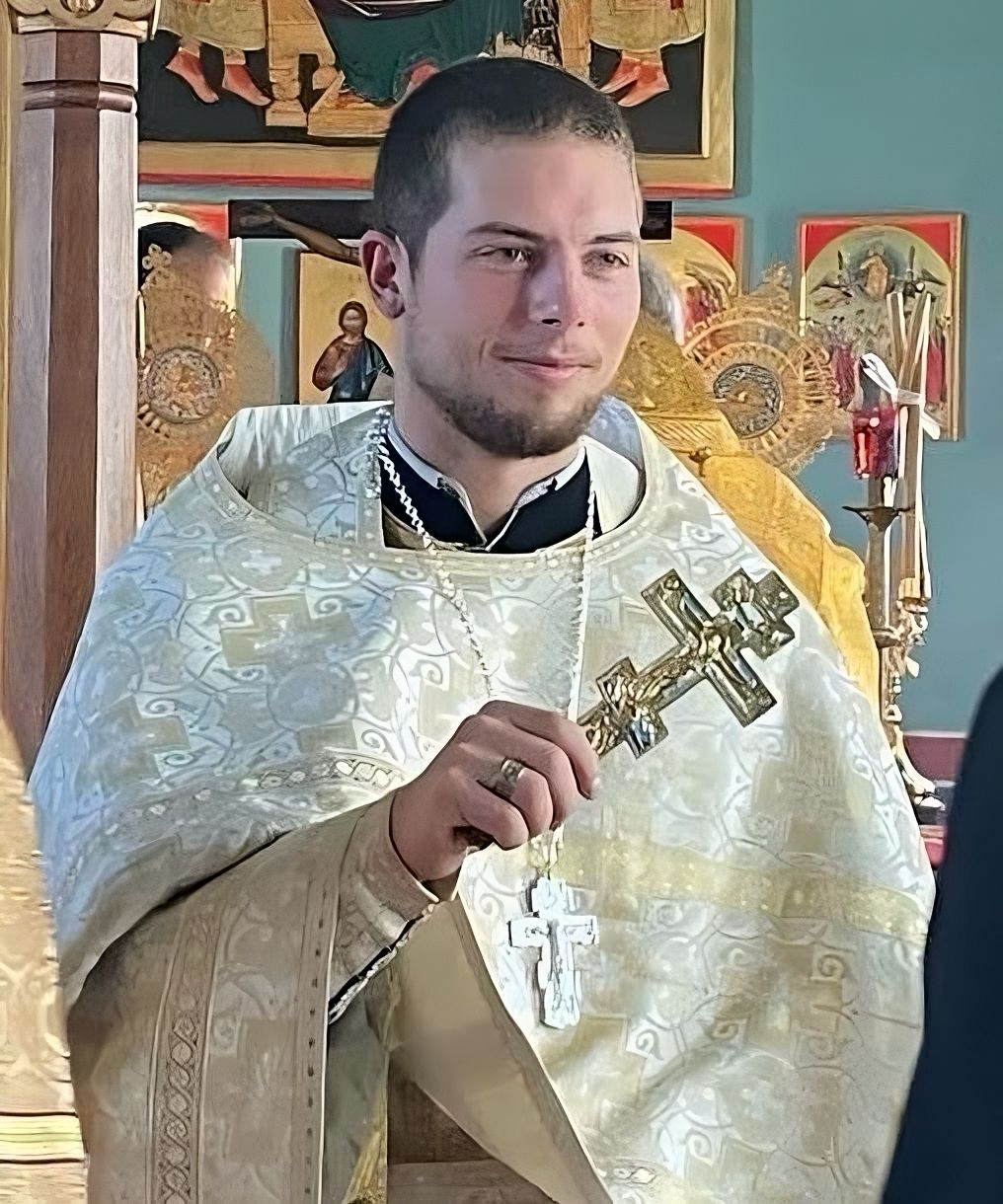Sunday of Cheesefare: Expulsion of Adam from Paradise; Forgiveness Sunday
Listen to Sermon
Transcript
In the name of the Father, and of the Son, and of the Holy Spirit.
The fear of the Lord is the beginning of wisdom, and those who foster it have a good understanding. What is the fear of the Lord? Last week we heard the words, "Whatever you do to the least of these, you do unto me." The Lord makes no distinction between himself and others.
In one of the icons of the Resurrection, the Lord is shown in a radiant light, so much so that He himself can hardly be seen, and yet His light shines on the faces of the Old Testament righteous who surround Him, making them visible. In the same icon, below the righteous of the Old Testament and far away from the light, we see a faint outline of a black horizon, an entire ocean of silhouettes covered in darkness.
St. Macarius the Great was once given a vision of hell. He asked a soul whether or not the prayers of those on earth are of any effect for them. The soul responded to the saint: "There are untold numbers of us here. We stand shoulder to shoulder, unable to move, unable to see each other, unable to understand each other. When you pray for us, we are given just enough light so that we can recognize one another."
It is only as we draw close to the light of Christ that we may come to know and be known by one another in the kingdom of love.
Today, in order to prepare us for the labors of the fast, the Holy Church remembers the expulsion of Adam and Eve from paradise, brought about by disobedience, which itself was made possible by the abandonment of the fear of God. Godly sorrow, the Apostle Paul tells us, produces repentance that leads to salvation, but the sorrow of the world produces death.
The fear of the Lord is ultimately a fear of separation—of separation from the One who loves and is love, and in whom we are capable of love. Worldly sorrow is that which separates us from one another. After Adam and Eve partook of the Tree of Knowledge of Good and Evil, after they abused creation by knowing it sensually, the first thing they did was to hide from one another and to hide from God. Thus the righteous fear of God—the fear of separation that was natural to the first-formed man in paradise—instead became an unnatural fear, a fear which drove man away from God and away from his neighbor. This is the fear of our own nakedness, of our vulnerability, which we so often wrongly protect with the coverings of self-opinion and scorn. This divides us from one another and from the only One who is able to truly give us peace.
"Take my yoke upon you," says the Lord, "and learn from me, for I am meek and humble in heart, and you will find rest for your souls."
As we approach the fast with all of our struggles to remove everything which separates our minds and hearts from the presence of God, let us remember our ancient first parents. But let us also consider what the Church so fittingly gives us on this day: the keys to re-enter that lost paradise, the keys of forgiveness.
Today, after Liturgy, we will pray a short Vespers service in which we will all embrace one another in asking for forgiveness as we begin our Lenten struggle. According to the old monastic tradition of the desert, the Paschal Stichera are sung. In this, we are not only given a foretaste of the Feast of our Lord's Pascha, but also of the Eternal Pascha that awaits us at His second coming. For this is both an image of heaven and, by far, the shortest means to get there.
"If you forgive men their trespasses," says the Lord, "your heavenly Father will forgive you."
Truly, there is no amount of evil in the world that can be permanent, as long as we are able to let go. God has already forgiven us everything. It is now up to us to accept this forgiveness, to learn to overcome ourselves, and to embrace one another; to call "brothers" even to those that hate us, that we may forgive all by the light of the resurrection. Amen.
Speaker

Fr. Peter James
Priest